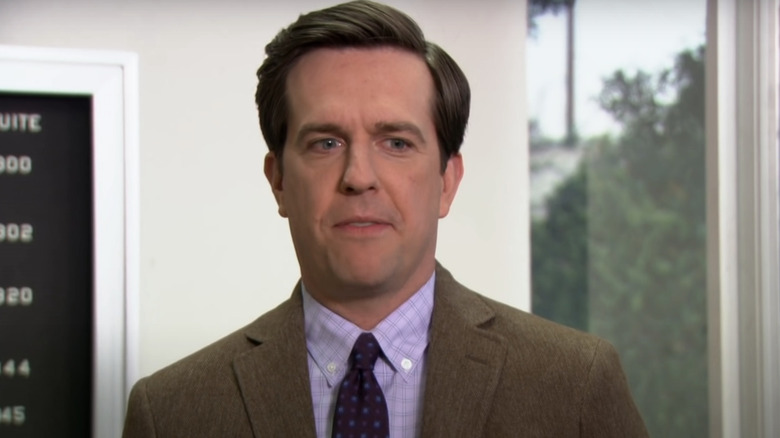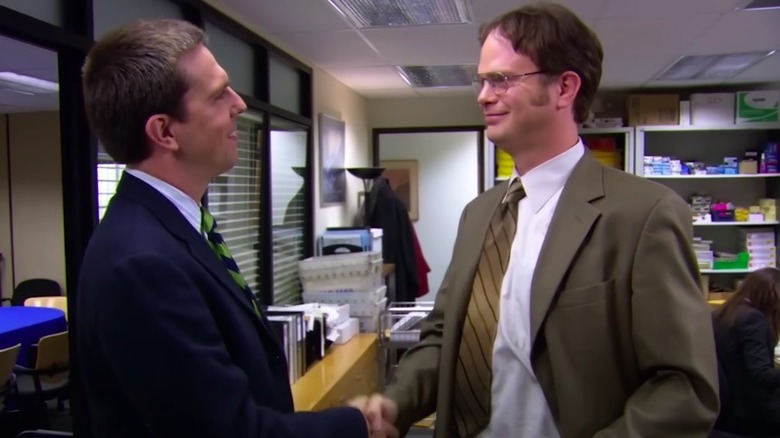The Office's Ed Helms Channeled His Childhood Bullies For His Catchphrase
"The Office," the ultra-popular mockumentary-style workplace comedy that ran on NBC from 2005 to 2013, is full of memorable characters, from ignorant regional manager Michael Scott (Steve Carell) to sarcastic salesman Jim Halpert (John Krasinski) and so on. Some of the main characters, such as Andy Bernard (Ed Helms), came into the mix in later seasons.
Introduced in Season 3, Andy is the Regional Director in Charge of Sales at the Stamford branch of Dunder Mifflin, where Jim has relocated to. Later that season, when the Stamford branch closes, Andy is transferred to the Scranton branch alongside Jim, where he immediately wants to impress Michael. Andy is known for being clueless and obnoxious and for having a bit of an anger problem — which leads to the very memorable scene in which Andy punches a hole in the office wall.
Andy is also known for saying a certain catchphrase from time to time: "Rit-dit-dit-da-do!" And as it turns out, that catchphrase has an origin story that goes back to Helms' childhood.
Helms' copied his childhood bullies for Andy's catchphrase
During an interview on The Late Show with Stephen Colbert, Ed Helms and Colbert bonded over the fact that they both grew up in the South, where they learned to be ultra-polite. Colbert wanted to know how that trained politeness led to Helms' career, which is full of rude or crass roles; aside from playing Andy in "The Office," Helms also starred in "The Hangover," a film series known for its raunchy humor. Helms explained that the roles have acted as an outlet for any repressed rage he felt growing up and having to be polite all the time, even when being bullied. However, he also revealed that something positive emerged from being bullied: this experience helped him come up with Andy's catchphrase on "The Office."
Helms explained, "[The catchphrase] started as a thing that these bullies at my school would [say] after they gave you a wedgie or pushed you down or, you know, humiliated you somehow, they'd go 'Rit-dit-dit-da-do! as a sort of expression of dominance." Colbert, laughing over the anecdote, was surprised to learn about the bullies' catchphrase. Helms said that it was even more terrifying to him as a kid because it made no sense.
Helms continued, "It's just one of those irrational expressions. So I took that and made something positive. It became Andy Bernard's expression of joy."

